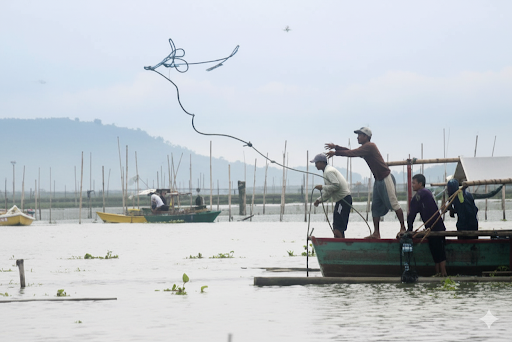



The WTO Agreement on Fisheries Subsidies is a landmark step in ocean governance, curbing harmful subsidies fueling overfishing and illegal practices, while safeguarding marine biodiversity, food security, and livelihoods of small-scale fishers, balancing sustainability with equitable economic growth globally.

Copyright infringement not intended
Picture Courtesy: MSN
The WTO Agreement on Fisheries Subsidies entered into force after Brazil, Kenya, Vietnam, and Tonga deposited their instruments of acceptance, pushing the total ratifications beyond the two-thirds threshold (111 of 164 members).
|
Read all about: WTO AGREEMENT ON FISHERIES SUBSIDIES |
It is a binding multilateral pact under the World Trade Organization (WTO), adopted at the 12th Ministerial Conference (MC12) in Geneva in 2022.
It curb government subsidies that distort trade and contribute to unsustainable fishing practices, aligning with SDG 14.6 to eliminate subsidies exacerbating overcapacity and overfishing.
Prevent Overexploitation: Target subsidies worth $22 billion annually that deplete fish stocks.
Promote Fair Trade and Equity: Level the playing field for small-scale fishers in developing nations against subsidized industrial fleets from major subsidizers (e.g., China, EU, US).
Ensure Food Security and Livelihoods: Protect the people reliant on fish for animal protein, including fisheries-dependent jobs.
Subsidy Prohibiting: Bans support for illegal, unreported, and unregulated (IUU) fishing; overfished stocks; and unregulated high seas fishing outside RFMOs (Regional Fisheries Management Organizations).
Implementation: WTO Fish Fund ($18+ million pledged by 17 members) aids least developed countries (LDCs)/developing countries with technical assistance.
Transparency and Monitoring: Members notify subsidies, vessel details, and activities; new Committee on Fisheries Subsidies oversees compliance and reviews.
Environmental Impact: Addresses overfishing, ocean health, supports UN Ocean Decade (2021-2030) by enhancing marine biodiversity.
Economic and Social Equity: Benefits small-scale fishers in Asia/Africa; reduces harmful subsidies, curbing unfair competition.
WTO Revival: First multilateral pact since 2013 Trade Facilitation Agreement; boosts credibility amid deadlock on broader reforms.
Global Reach: Applies to all WTO members; non-ratifiers (e.g., India pending) face pressure.
Incomplete Coverage: Only prohibits harmful subsidies; ongoing talks for full disciplines delayed by disagreements and data gaps.
Capacity Constraints: Developing countries lack resources for notifications and monitoring; Fish Fund underfunded relative to needs.
Enforcement Gaps: Relies on self-reporting; disputes via WTO's Dispute Settlement Body, currently impaired by US blockade on Appellate Body.
Geopolitical Tensions: Major subsidizers (China: $6.5 billion/year) may resist; IUU fishing persists in unregulated areas (e.g., South China Sea).
India, a major fisheries exporter ($7.38 billion in 2023-24), has not yet ratified but actively participated in negotiations.
Concerns: Impact on small-scale fishers; seeks longer grace periods and exemptions for artisanal subsidies to protect livelihoods under PM Matsya Sampada Yojana.
Strategic Angle: As a Global South leader, India pushes for equity; ratification could align with Blue Economy goals but risks trade disputes if subsidies are scrutinized.
Source: MSN
|
PRACTICE QUESTION Q. The WTO Agreement on Fisheries Subsidies is a significant step towards sustainable ocean governance but presents a complex challenge for developing nations. Discuss. 150 words |
The core aim is to combat the global crisis of overfishing and marine resource depletion by prohibiting government subsidies that contribute to illegal, unreported, and unregulated (IUU) fishing, overfished stocks, and unregulated high seas fishing.
India advocated for the principles of 'polluter pays' and 'common but differentiated responsibilities.' Its main concern is ensuring the agreement doesn't unfairly restrict subsidies vital for the livelihoods and food security of its millions of small-scale artisanal fishers.
The WTO Fish Fund is a voluntary funding mechanism created to provide technical assistance and capacity-building support to developing and least developed countries to help them implement the new obligations and manage their fisheries sustainably.





© 2026 iasgyan. All right reserved